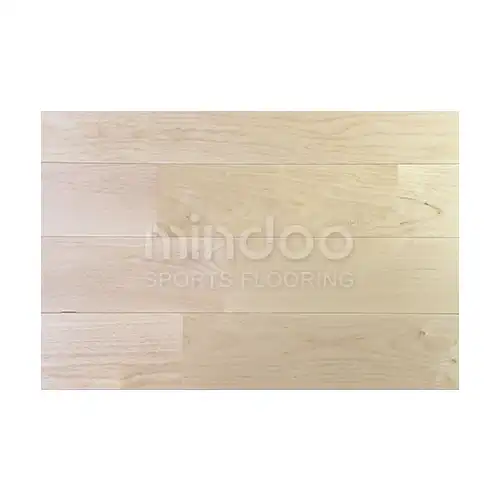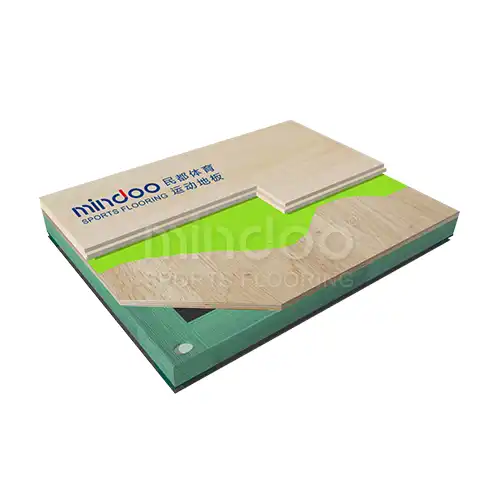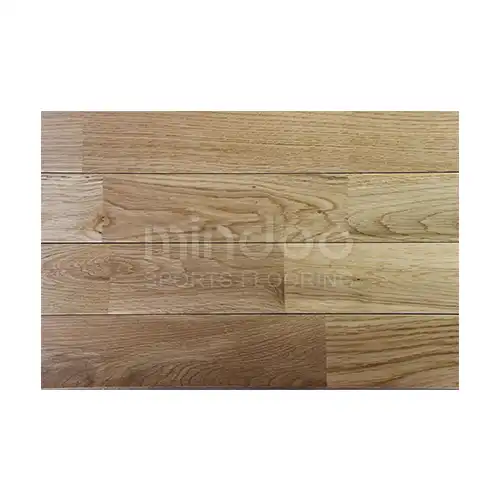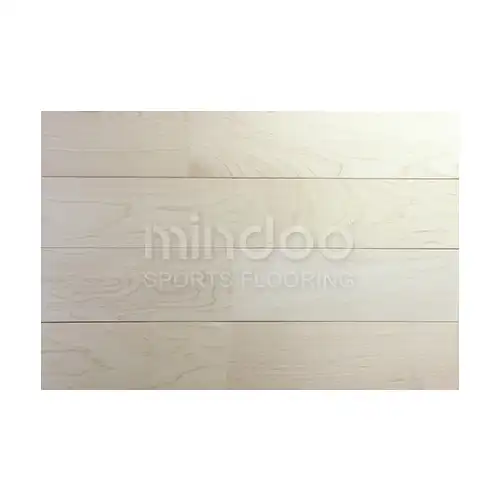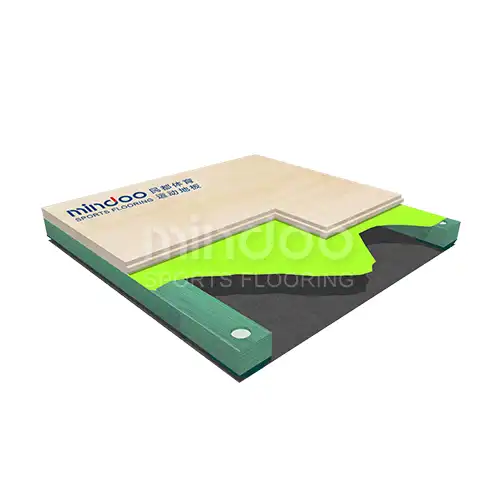Maximizing ROI: The Economic Benefits and Long-Term Returns of Investing in High-Quality Sports Hardwood Flooring for Venues
When constructing or upgrading sports venues, striking the right balance between short-term investment and long-term returns is a critical challenge faced by venue managers. For those considering sports hardwood flooring, the quality and durability of the flooring directly influence both operational costs and user experience. High-quality hardwood flooring, especially solid wood, is not just the foundation of a sports facility; it is also one of the core assets for long-term profitability and sustainable development.

1. Initial Investment vs. Long-Term Returns of Sports Hardwood Flooring
Initial investments are a significant decision in any venue construction project. However, choosing high-quality sports hardwood flooring often results in higher long-term economic benefits.
Short-Term Costs vs. Long-Term Gains
While high-quality solid wood flooring typically involves higher procurement and installation costs, its durability, comfort, and ability to enhance athletes' performance far outweigh these initial expenses. For example, high-quality hardwood floors can significantly reduce maintenance frequency and repair costs, thus lowering long-term operational expenses.
Industry research shows that venues with premium sports hardwood flooring typically have a lifespan of 5-10 years longer without needing major renovations or replacements compared to venues with low-quality flooring, which leads to reduced overall operational costs. Moreover, premium flooring can last 15-20 years, while lower-quality alternatives may require replacement or significant repairs every 3-5 years.
2. Enhancing User Experience and Increasing Venue Utilization
Sports hardwood flooring is more than just a physical surface—it significantly affects the experience of athletes and spectators alike. High-quality flooring provides optimal elasticity and friction levels, which help reduce injuries and improve athletic performance. These attributes not only meet the needs of professional events but also directly enhance the venue's reputation and brand value.
Additionally, high-quality flooring ensures the venue's versatility and adaptability. Many venues host not only professional sports events but also community fitness activities, basketball, badminton, volleyball, and more. If the flooring quality is subpar, it may restrict the types of activities the venue can host. By investing in a floor that supports multiple sports, venues can see a higher return on investment and attract a broader market.
3. Reducing Maintenance and Operational Costs
The benefits of high-quality solid hardwood flooring are especially noticeable when it comes to maintenance. Compared to traditional vinyl or synthetic flooring, hardwood floors are easier to clean and maintain. Their wear resistance and self-repair capabilities reduce the costs associated with frequent repairs. Over time, although wood flooring may require occasional waxing and care, its overall maintenance costs are significantly lower than those of inferior quality alternatives.

For example, some venues experience frequent replacement or repair costs due to poor-quality flooring, which adds material expenses, installation costs, and downtime. In contrast, premium hardwood floors require far less frequent maintenance, drastically lowering long-term upkeep costs.
4. Venue Appreciation and Brand Image Enhancement
Beyond direct operational savings, premium sports hardwood flooring adds value to the venue. By choosing high-quality flooring, venue managers are not just investing in the floor but also in the venue’s brand image. A well-crafted, durable hardwood floor enhances the overall aesthetic of the venue, making it look more professional and upscale, which in turn boosts the venue’s market appeal.
Whether hosting professional sports events or providing a multi-purpose space for community activities, high-quality wood flooring increases the venue's competitiveness and attractiveness to sponsors and visitors. As the venue’s reputation grows, so will its revenue and returns.
5. Sustainability and Environmental Benefits
With rising environmental regulations and the growing emphasis on sustainable development, investing in high-quality sports hardwood flooring offers significant eco-friendly advantages. Premium hardwood flooring is often sourced from sustainably managed forests and complies with green building standards, reducing the environmental impact compared to synthetic materials. This approach not only lowers the carbon footprint but also boosts the venue's social responsibility and public image.
Many venues are beginning to realize that using eco-friendly materials not only aligns with current market trends but also appeals to environmentally-conscious clientele, further contributing to long-term commercial success.
While high-quality sports hardwood flooring may come with a higher initial price tag, the long-term economic benefits—including reduced operational and maintenance costs, enhanced venue utilization, and improved brand image—make it a sound investment. Venue owners and managers should view this investment from a long-term perspective and recognize its value in both the construction and upgrading phases of their facilities.
If you are planning to upgrade an existing venue or incorporate sports hardwood flooring into a new sports facility, consider our premium solid wood flooring solutions. With years of professional experience and high construction standards, our products ensure that your venue will benefit from greater operational efficiency and sustainable long-term returns.
Choosing high-quality sports hardwood flooring is more than just an upgrade to the venue—it’s an investment in the future of the venue’s operations and development. The long-term returns on this investment far exceed the short-term costs, making it a vital element of any venue construction or upgrade. We are confident that with our products and services, your venue will achieve maximum economic benefits and long-term success.
